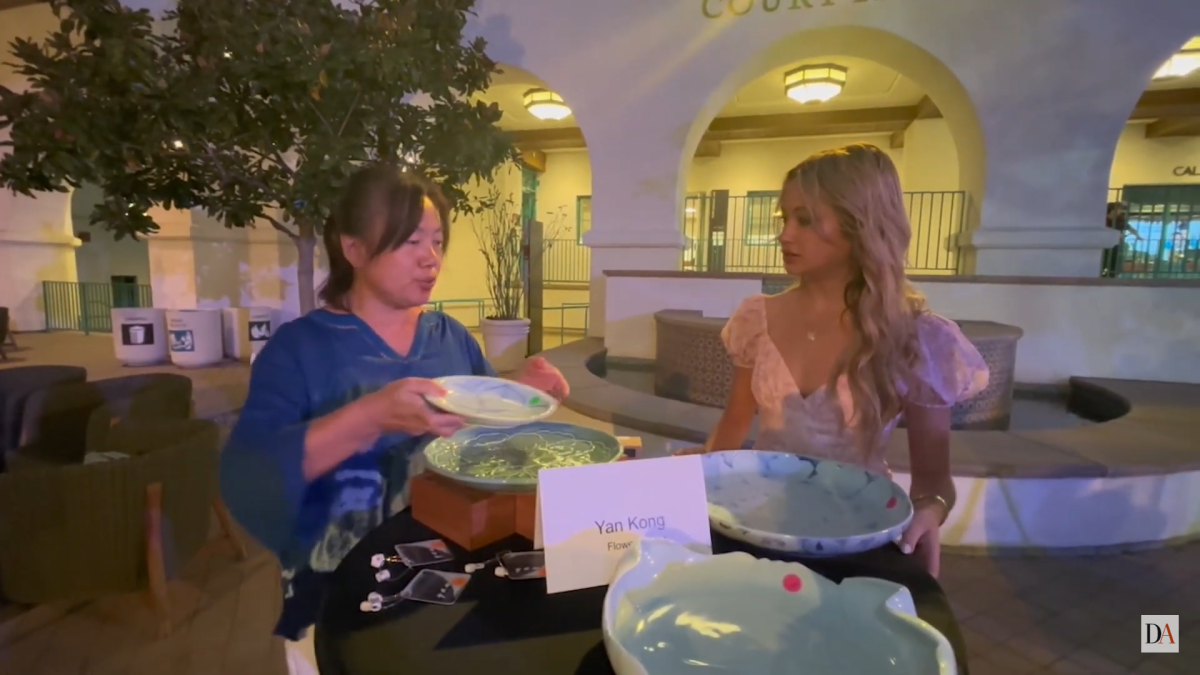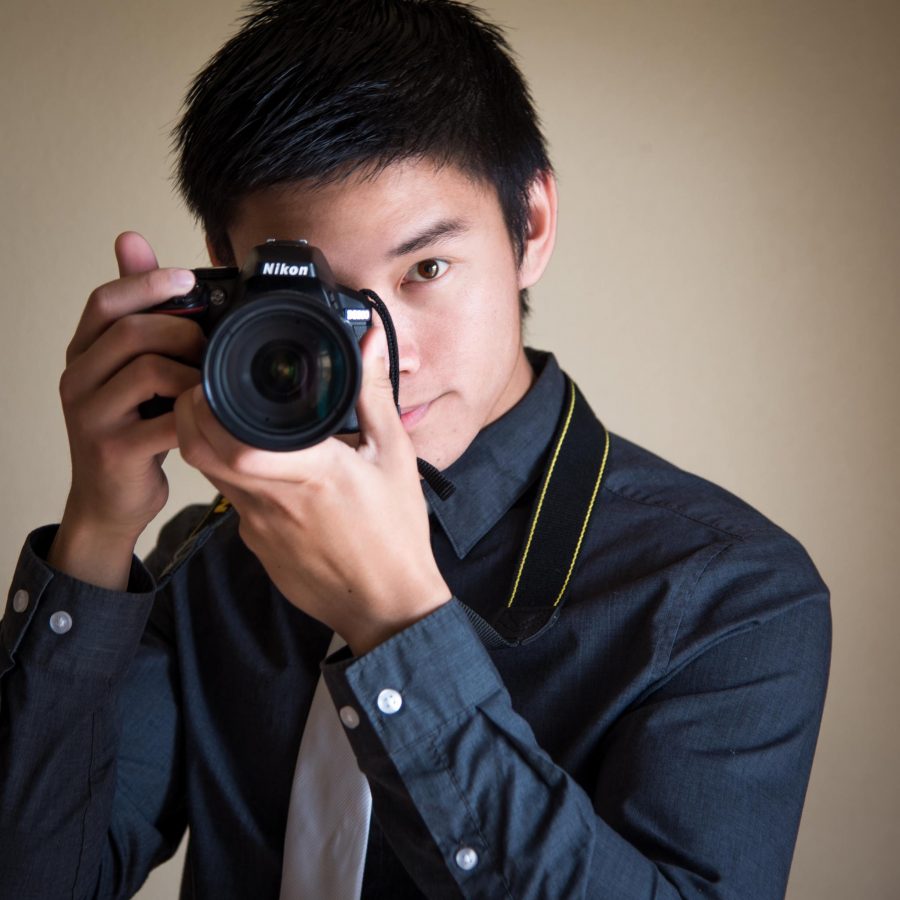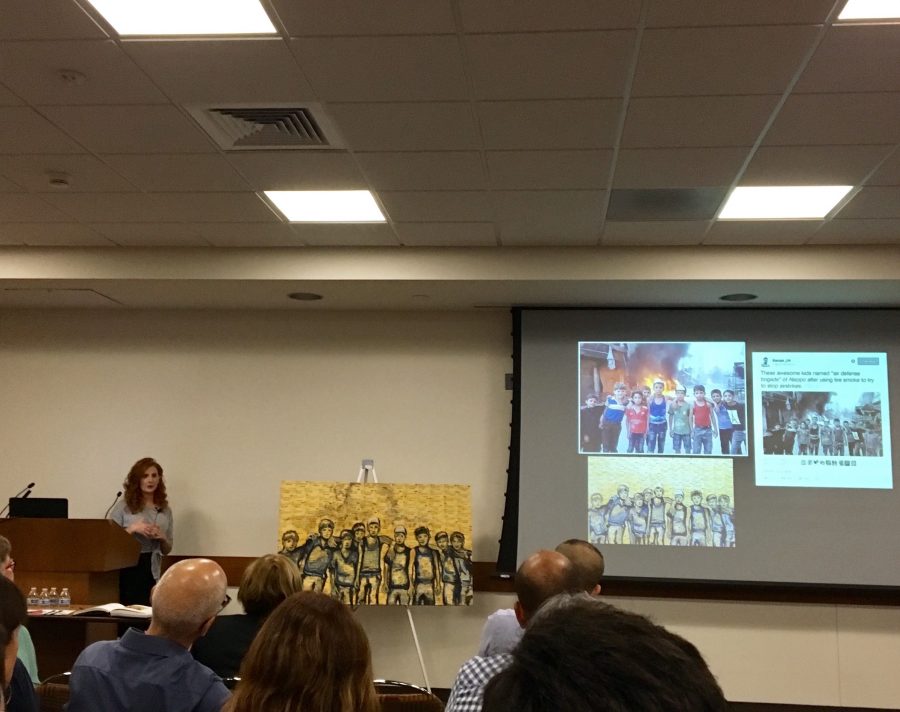
Director Joe Wright squints in the bright spring sunlight as he steps out of his car and into the KPBS building at San Diego State. With his rumpled blue suit, slightly silvering hair and coffee held firmly in hand, the creator of beloved and beautiful films such as “Pride and Prejudice,” “Atonement” and “The Soloist” strikes a humble and unassuming figure.
He’s garnered 12 Oscar nominations for his work and his most recent project is “Hanna,” a different take on an action-packed thriller, starring Saoirse Ronan, Eric Bana and Cate Blanchett.
Compared to his critically acclaimed work on period pieces, the film’s fast paced violence seems like a far cry from the love stories he’s become so popular for. However, Wright is convinced the film is very in tune with his personal style. Well-known for his close knit relationships with his actors, especially Keira Knightley and Ronan (he worked with both in “Atonement” and Knightley in “Pride and Prejudice”), Wright was recommended as the director for “Hanna” by Ronan in 2009.
The Daily Aztec: What movies inspired you to become a director?
Joe Wright: I guess I’ve always been very interested in film, even from a very early age. I went and saw “Close Encounters of the Third Kind” when I was 6 and it scared the bejesus out of me. I think that was a matter of trying to overcome my fears really and I probably think it still is. But there’s different stages. When I was 15 I saw “Blue Velvet” and “Taxi Driver” in the same summer and watched them on repeat and was fascinated by this strange dark poetry. To be very frank, I also thought I might be able to get a girlfriend if I became a film director.
DA: What kind of director are you? Hand-holder? Hands-on? Removed?
JW: I’m very hands-on really. I like to sit right next to the camera and I like to be the first person to talk to the actors once we’ve done a take. I like a relaxed atmosphere on set; I think it’s important that people work in a relaxed environment so that they can express themselves creatively. I hope I kind of nurture talent and give it room to breathe.
DA: What do you consider the best part of being a director?
JW: Best part is being on set. It’s like having a front row seat at the most extraordinary theater ever and a performance that feels like it’s just for you. I love actors; they’re extraordinary people. It’s quite a very brave thing to do, to be an actor; I love that.
DA: With “Hanna,” it was almost as if we’ve never seen this character. Not only was she physically strong, her character spoke to audiences as a strong-willed woman. Was there an intentional feminist undertone to the movie?
JW: I thought a lot about the role of women in society and I’m perturbed by the continued objectification of young women. I look around me and I wonder what happened to feminism. Was feminism just a kind of fashion that passed? Because it certainly wasn’t supposed to be. It was supposed to be a movement that would change the world. I’m very perturbed by the fact that I see sensible women taking pole dancing classes. That kind of worries me, a lot. I think the whole culture of sexual objectification is dangerous and I’m kind of appalled by the fact that women seem to be buying into it also. I was thinking about those themes while making the movie.
Also, I think most action movies have a very dubious socio-political point of view. It’s all about the glorification of violence and women becoming objects. I wanted to make an action movie that had a moral and a socio-political conscious.
DA: “Hanna” travels throughout very different parts of the world such as Morocco, Finland and Germany, what was it like working on such diverse locations?
JW: It’s certainly always better to place your actors in a real environment that they can respond to. I don’t know how directors and actors do those CGI green screen movies, it would feel very strange to me. Also, I just like going to very strange and extraordinary places. I’m not very good at holidays, so I like my work to take me to some wonderful places. I love that about my work. I’m quite a homebody but then I make my films; I go off and explore the world.
DA: You’ve worked with Saoirse Ronan and Keira Knightley multiple times, what draws you to working with them?
JW: Saoirse has this extraordinary imagination. She acts from a place of the imagination, she’s not a method actor, she doesn’t try and investigate her own past or get involved in any emotional recall or anything like that. It’s literally an act of the imagination and I find that to be a very interesting way of working and a way of work that I believe in. Keira is kind of very relaxed in a way and also works from a place of imagination, but she tries to find the simplicity in a character and in a moment. She doesn’t have much ego and she’s just a really decent human being really. I love Keira very much and we’ve just done a new Chanel commercial together and I hope that Keira will be starring in my next film. In fact I hope that they will both be in my next film, Keira and Saoirse.
DA: Hanna seems like a dramatic departure from your previous movies. Are there other genres that you would like to explore?
JW: I don’t really think I make genre movies. At least I never kind of try to think about genre whilst I’m making the movie. I think genre is like a categorization that’s imposed by other people. I certainly didn’t think about it while I was making this. I guess I really enjoyed the fantasy element of “Hanna” and I saw that as being very close to period films. I don’t want to be pigeonholed really, I worry that being pigeonholed will cut my career short and I want to be doing this for a long time.
DA: Rumors have been circulating about your new project, an adaptation of “Anna Karenina.” Can you confirm any of the starring roles?
JW: Keira is on board; Jude Law is on board, a young actor Aaron Johnson … Saoirse is on board playing Kitty. So we’ve got a wonderful cast and we’re fairly confident that we can figure out a film.






